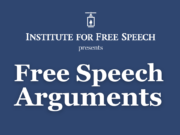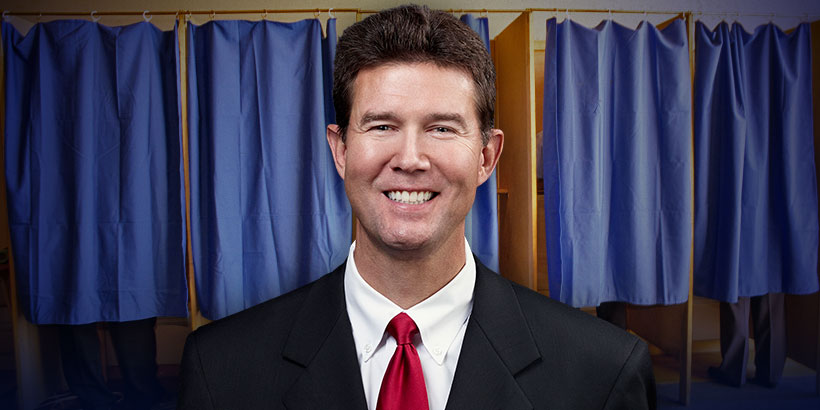We have a changing of the guard at Twitter. The company’s announcement of a new CEO provides a golden opportunity to enshrine its commitment to free speech.
New CEO Linda Yaccarino has signaled an openness to protect free expression. She has said that Twitter’s leadership will gather continual feedback and that she agrees that free speech is the bedrock of the United States.
This is encouraging, but broad statements aren’t enough. Just like our system of government, Twitter needs checks and balances to robustly protect free speech. Creating a meaningful appeals process and installing dedicated “free speech defenders” would help achieve that goal.
Elon Musk calls himself a free speech absolutist and has committed the platform to more diversity of thought. He released the Twitter Files, which detailed Twitter’s previous “visibility filtering” of some content and pressures placed on the company by government officials to censor. And Musk brought back some suspended accounts.
Yet Musk has also undercut free speech. Without a clear reason, he suspended journalist accounts reporting on the controversy of posts about his location. Twitter limited posts about alternative social media sites, such as Substack and Mastodon. It also appears that Twitter may have “visibility filtered” and downranked some tweets related to the Ukraine war and certain LGBTQ issues.
The problem with this approach is that Twitter’s content policies have been almost singlehandedly directed by Musk and have changed over time. This creates problems for speech by making users wary of what they can post. No person is perfect, and Musk has three companies to run, so relying on one individual to drive moderation decisions will inevitably produce errors and arbitrary decisions. Giving users clear content moderation guidelines and allowing them to meaningfully appeal decisions would provide significant safeguards against arbitrary content moderation.
The recent controversy within Twitter of allowing The Daily Wire to post a movie called “What is a Woman” highlights the need for an effective appeals process. The film discusses transgender issues and includes misgendering speech. Twitter originally allowed the movie to appear, but then rescinded that acceptance. The platform was then poised to limit the visibility of the movie and flag it as “hateful conduct,” only to have Elon Musk himself step in and overrule the previous decision and allow the movie to be shared. In the aftermath, two high-level Twitter executives left the company.
This incident illustrates the importance of having clear speech guidelines that are protected through a strong appeals process. Speakers should not have to appeal all the way to Elon Musk to get a remedy, and it is better to have an independent body rather than a lone individual rule on important speech issues.
Linda Yaccarino has the chance to cement Twitter’s verbal commitment to free speech into practical protections. First, she should construct a meaningful independent appeals process that operates quickly.
When users have their content taken down, they should have the right to immediately appeal the decision based on the Twitter Rules. Twitter should commit to reviewing any appeal and rendering a decision in a set amount of time.
Of course, a speedy appeals process will be costly, especially if the reviewers are independent. One solution would be to allow any user to pay a fixed fee for an expedited review of the purported violation. If the user wins the appeal, Twitter would refund the fee and pay a fixed penalty to the user for the censorship. The penalty should be high enough to deter poor decisions by Twitter but not so high as to incentivize people to use the process as a way of making money.
Beyond the everyday appeals process, Twitter should create an Oversight Board, in the fashion of Facebook’s Oversight Board, to accept and decide complex complaints and controversial issues. This Board would operate as a kind of Supreme Court staffed with free expression experts and lawyers who carefully weigh the impacts of content moderation approaches on free speech. Fittingly, their mantra is “Ensuring respect for free expression through independent judgment.”
The Oversight Board’s decisions should be contractually binding on Twitter and their decisions and influence must also filter down to the initial appeals stages. Having independent decision-makers and multiple stages of appeal help protect users from arbitrary or incorrect decisions.
The other major change Yaccarino should implement is having dedicated “free speech defenders” on the staff to advocate for free speech. These defenders would have the responsibility to always argue why content on the platform should stay up, to combat pressures to censor for financial or public relations reasons. People often descend into groupthink and agree to censor content without considering alternatives. The free speech defender forces Twitter’s leadership to always consider the free speech implications of their actions.
There are many other positive changes Twitter should implement to bolster free speech, such as the helpful list compiled by the Institute for Free Speech’s Chairman Brad Smith. These policy changes are important, but good policy won’t mean anything if there aren’t strong procedures to protect the principles at stake. A meaningful appeals process and dedicated free speech advocates will help pave the way for social media to safeguard free expression in the digital sphere.














